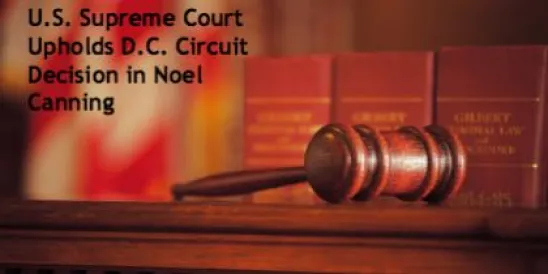On June 10, 2016, the US Department of Justice (DOJ) and the Federal Trade Commission (FTC) jointly submitted a letter recommending that the North Carolina General Assembly limit the definition of the “practice of law” only to activities for which “specialized legal knowledge and training” is demonstrably necessary to protect consumers. The regulators argue that if such a definition were applied to North Carolina House Bill 436, presently under consideration, it would promote competition between lawyers and non-lawyers in the provision of legal-related services.
The North Carolina bill arises from a consent agreement LegalZoom entered into with the North Carolina State Bar in November 2015. We previously analyzed this controversy, in which LegalZoom had alleged the State Bar violated federal antitrust laws by refusing to register the company’s prepaid legal services. In its current form, HB 436 protects web-based providers such as LegalZoom.com by excluding from the statutory definition of the “practice of law” the operation of a website that generates legal documents in response to customer input, which further shields the operators of such websites from private causes of action from the unauthorized practice of law. The regulators recommend that the North Carolina General Assembly rework the definition, to protect other “similar self-help products that may generate legal forms.” They reason that these self-help products and other interactive software programs for generating legal documents will enable non-lawyers “to provide many services that historically were provided exclusively by lawyers.”
At the same time, the regulators acknowledge that these self-help programs potentially raise consumer protection issues as to whether a customer can understand the generated forms and whether it is desirable for a consumer to seek attorney services. These types of decisions about consumer protection have traditionally been decided by states and regulated under their occupational licensing frameworks. After all, the “boundaries of the practice of law are frequently unclear and have varied significantly over time.” Here, the regulators considered these interests and encouraged the North Carolina General Assembly to “avoid restrictions on the performance of legal-related services that are not necessary to address legitimate and substantial harms to consumer.”
This letter should be viewed in the context of the regulators’ involvement in occupational licensing and competition concerns generally. Last February, the Supreme Court of the United States affirmed an FTC decision not to apply state action antitrust immunity for occupational licensing boards that are composed of market participants and not actively supervised by the state in North Carolina State Board of Dental Examiners v. Federal Trade Commission, 574 U.S.___ (Feb. 25, 2015), which this blog analyzed shortly after the decision. Here, the regulators continued their review of occupational licensing schemes, focusing on the substance of the licensing scheme. In these and other actions, the regulators have shown a commitment to challenging state occupation licensing schemes to increase competition.



 />i
/>i

